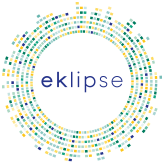Timeline
- Date request received: 02/10/2017
- Call for Knowledge: 12/01/2018
- Call for Experts: 06/06/2018
- Date of experts selection: 12/07/2018
- Date of kick-off EWG meeting: 26/07/2018
- Date of the first meeting with the requesters and EKLIPSE KCB and methods experts: 15/12/2017
The requester was BiodivERsA, a network of national and regional funding organisations promoting pan‐European research on biodiversity and ecosystem services and offering innovative opportunities for biodiversity conservation and sustainable management. This request’s objective is to focus on constraints or barriers to effective restoration, including the identification of knowledge gaps restricting restoration approaches and actions, appropriate methodologies, optimal management, and effectiveness of interventions. It is not restricted to a specific type of restoration or ecosystem (Ockendon et al., 2018).
Scoping phase
The initial request focused on the identification of knowledge gaps on ecosystem restoration, asking, “Is missing knowledge hampering the effectiveness of approaches that aim to restore biodiversity and ecosystem function and services?”. To refine the request, EKLIPSE carried out scoping activities:
- Call for Knowledge (CfK) to identify already existing work on the request: it resulted in seven contributions from experts from Spain, Sweden, Czech Republic, UK and France, and the identification of relevant publications.
- Evaluation of the policy and stakeholder relevance via bilateral telephone interviews and email requests.
After scoping, the final formulation of the request is: “What is hampering the effectiveness of existing approaches that aim to restore biodiversity and ecosystem function and services”. This allows for knowledge gaps as well as other factors to be considered. Therefore, this request requires input from the social sciences and ecological research needs, pointing to the fact that some of the gaps will relate to research. In contrast, others will point to impediments to the use of existing knowledge, including a lack of awareness of that knowledge.
It was recognised that there are specific ecosystems (e.g. marine) for which there are more knowledge gaps (e.g. ecological) than others (e.g. grasslands). However, from a policy perspective, it may be useful to use a general approach to all MAES ecosystem types followed by some case studies focusing on knowledge gaps specific to ecosystem services (e.g. pollination) or ecosystem types. This request is relevant to restoration across Europe, including the EU’s Overseas Countries and Territories.
The Document of Work (DoW) described the results of the scoping activities and the background of the request and was the basis for the call for experts.
Answering the request
Selection of an Expert Working Group (see above)
Following the Call for Experts (CfE. 2/2017/2), the Expert Working Group (EWG) were selected. Twelve experts formed the group from 8 European countries (Czech Republic, Finland, Greece, Ireland, Netherlands, Portugal, Spain, United Kingdom and one non‐European Country, Australia).
Methods Protocol (file. 03/03/2019)
During its preliminary discussions, it was recognised the importance of understanding the key ecological, social, governance, legislative, economic, financial, technical, cultural and political barriers that may hamper effective restoration. For this reason, the EWG decided to run two parallel approaches to the widest view of the issue within the time frame and resources available. Restoration, when approached effectively, incorporates many domains. The EWG aimed to ensure that the report tackled the Request to cover as wide a range of sectors and disciplines as possible, thus avoiding problems often created by silo thinking and approaches. The two parallel and complementary approaches employed were:
- Literature Scoping Review: provides information on the attention given to this topic in the scientific literature
- Delphi process: provides direct access to a wide range of actors, including academics, practitioners, policy makers and others’ perceptions on the main barriers hampering ecological restoration in the EU.
The two approaches were conducted in parallel and designed so that the results were complementary to each other. The Eklipse Restoration EWG agreed on a draft in early November 2018. This document was open for public consultation among peers for comments until December 2018
Finalisation
The expert group completed their draft report, which was opened for consultation through an external expert review and public consultation.
In February 2020, the final report was published.




